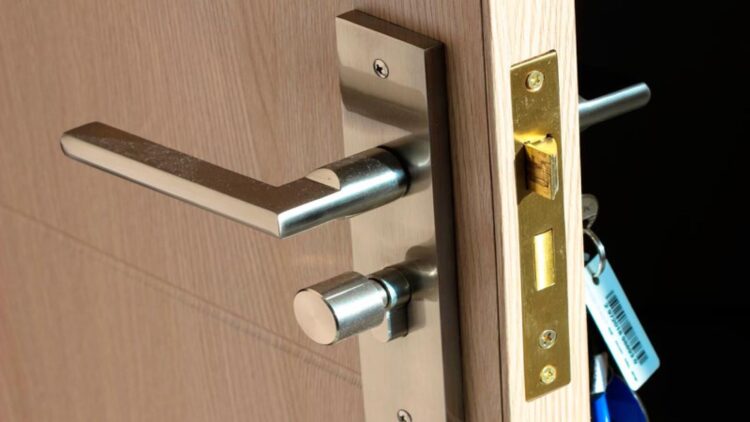Home security is essential, as our home is ultimately our comfort zone, where the most important part of our lives unfolds and where we usually keep valuables, among other things. Therefore, many of us take certain precautions, such as leaving the key in the lock from the inside. It’s generally understood that this makes it harder for thieves to break in, but experts explain that this isn’t entirely true. “When the key is left inside, someone outside can use a powerful neodymium magnet to turn it and open the door without breaking anything,” the experts explain.
This protection is unreliable, according to experts
Samuel Prieto, a home security expert at Netpol, a Spanish company that offers public safety training courses, explains how this habit can make things easier for potential burglars. Prieto emphasizes that turning the key from the inside provides no additional protection. This protection is unreliable, according to experts. With low-end locks or vulnerable cylinders, techniques for opening locks without forcing them, such as bumping or lock picking, do not completely guarantee the door’s resistance. In fact, there are cases where a thief could easily manipulate the locking system, even if the key is in the lock. In other words, homeowners may be unwittingly making the thieves’ job easier.
In any case, it’s true that leaving the key in the lock can make it harder for thieves to break in, although this depends on the type of lock. In most modern locks, when the key is left in the lock on the inside, the locking mechanism automatically locks from the outside. This is due to an internal device known as a “single clutch,” which prevents the outside key from being inserted and turned when the inside key is in place. This way, the system locks, and it appears that the door is secure. But as we said, this isn’t the case with all locks.
This protection is unreliable, according to experts from reaching you
It’s also important to keep in mind that leaving the key in the lock can hinder not only burglars’ access but also help in case of emergency, such as a household accident. If a family member, especially an elderly person, has an accident inside the home and the door is locked, relatives or emergency services won’t be able to enter quickly. Therefore, Prieto points out that leaving the key in the lock can prevent emergency services or family members from reaching you during a crisis, so it might be better to opt for other methods.
There’s another problem, in addition to the ones mentioned above, related to leaving the key in the lock. If you leave home and forget that the key is in the lock, you can’t get back in, forcing you to call a locksmith and incurring additional costs. This happens more often than you might think. Some people have left their key inside the lock, and even with a locksmith, opening the door becomes a very complicated (and expensive) task.
Therefore, and following expert opinion, leaving the key in the lock while you sleep can make it easier for thieves to break in. According to industry professionals, the best advice is not to leave the key in the lock on the inside, as this doesn’t improve security and can create more problems than it solves. They also emphasize the importance of having high-security locks. Prieto points out that this practice is so common that even the police have sometimes suggested it to robbery victims, but he warns that it’s a serious mistake. In several European countries, single-cylinder locks that lock automatically when the key is turned are prohibited. Modern cylinders have advanced features, such as anti-bumping, anti-picking, anti-drilling, and anti-extraction systems.

